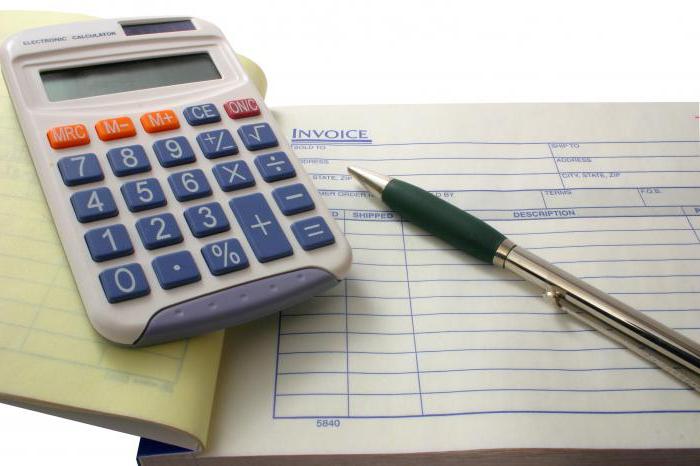Depreciation of depreciable property is carried out in accordance with Article 256 of the twenty-fifth chapter of the Tax Code currently in force in our country. This accounting process submits a certain category of fixed assets, the useful use of which is determined by an annual period or more. Moreover, the price of such facilities should be at least forty thousand rubles. In addition to the property itself, intellectual property rights are also subject to depreciation if the taxpayer receives some income through them. Depreciation allows you to gradually pay off the cost.

Important Features
Accounting for depreciable property is determined by the specifics of the enterprise. In particular, if the objects falling under the mentioned article were obtained by a company specializing in the provision of public services, then they have an owner different from this legal entity. An agreement is concluded between the firms (investment, concession). Based on this document, depreciation is made. Deductions are only relied upon while the agreement is in effect.
In the case when the depreciable property of the organization was received from the owner, while the enterprise is among the unitary, special rules apply. An additional condition: the owner must also belong to the category of unitary enterprises or act on the basis of economic management. In this situation, the enterprise that receives the objects for use should be involved in deductions related to depreciation.
What else to look for?
As follows from the postulates of normative acts that subordinate the tax accounting of depreciable property, its specifics and subtle aspects, special attention deserves the situation when the objects are transferred to the legal entity from the lender or by agreement on lease relationships. In this situation, the user of the property can invest in the received capital finances, if the owner agrees to this. The lessee or the recipient of the loan is the legal entity that deals with depreciation.

No need at all!
The laws established that the following groups of property are not subject to appropriate accounting entries (they are not depreciable):
- Subject to laws on the use of natural resources (land, subsoil, water, forests);
- products
- unfinished objects that should become capital;
- inventories;
- stocks, bonds and other securities;
- tools used to conclude an urgent financial agreement (options, futures).
Complementing the list
Do not belong to the category of depreciable property in accounting:
- objects owned by budgetary legal entities, if not used as part of entrepreneurial activity;
- targeted property incomes used in the framework of the work of non-profit enterprises;
- targeted targeted financing based on budget funds (an exceptional case is privatization);
- allocation of funds for the specific purpose of improving a certain area (road, forest);
- works of art, book products, brochures (the price for the goods is included in other expenses caused by the production, sales process at the time of purchase, but this does not apply to works of art);
- received by municipalities, state institutions as part of a gratuitous transfer and used in the activity of this legal entity;
- property intended for the operation of state-owned institutions and owned by such.

It is important
As part of the analysis of depreciable property, it must be borne in mind that it is impossible to include objects that were legally obtained free of charge, as well as property transferred without any payment to the benefit of nuclear plants. An exception is made also by such facilities which were received by the institutions included in the DOSAAF of our state if they exist to prepare citizens for specialties related to military affairs, and are also associated with sports activities that belong to the category of applied, military sports.
When deducting depreciation, a party will have to bypass such rights to intellectual objects that were purchased, but the payment process is periodic and the contract has not yet been completed.
Categories are different
As mentioned above, depreciable property is recognized as belonging to the category of fixed assets, but this condition is optional. There are several exceptional groups that do not belong to the total volume of the OS, but fall under the class in question. The most striking example is the objects that the company received for use by virtue of an agreement for gratuitous use. Similarly, it is necessary to depreciate, but it is not allowed to include objects in the OS that are included in the court registry at the international level.
When analyzing depreciable property, it will be necessary to include in the category subject to this operation a list of objects that are currently in a mothballed condition if a decision of the manager was issued for this. A prerequisite is the duration of the preservation of three months or more. Finally, they do not belong to the OS, but all those objects that are currently being modernized, reconstructed are included in the group under consideration. An important condition here is also an order signed by the head of the enterprise. For an object to fall under one category, but not be included in another, it must be in the mode of work from a year or more.
Pay attention: composition of depreciable property
Depreciable property, which was mothballed in accordance with the decision of the chief executive officer of the company, can at any time be removed from this state if the director makes the appropriate decision. If at the same time the object, which by default belongs to the OS category, was subject to depreciation until canning, then the useful life should be increased exactly for the period that was carried out in a stable position without operation.

Signs of depreciable property
If some company owns objects, you should check them for compliance with two key conditions:
- they are used in the workflow for a year or more;
- they are exploited for profit;
- the cost of this facility is from one hundred thousand rubles, if it is operated from the first day of 2016;
- property value - forty thousand rubles, if the period of operation began earlier than the mentioned date;
- the company owns these properties as property.
The last rule regarding reckoning as depreciable property was entered into force with certain reservations, specified in detail in the first paragraph of Article 256 of the Tax Code. A number of special conditions, as mentioned above, apply to unitary enterprises and some other situations. When clarifying the specifics of a particular case, the accountants of the enterprise should pay special attention to the letter issued by the Ministry of Finance in the last month of 2015. It describes some special cases when depreciation is unacceptable in accordance with applicable regulations.The document is published under the number 03-03-06 / 4/65313.
Information Technology and Laws
Special attention in the current regulatory acts is given to companies working in the field of high technologies and information systems. Such firms may not include computers used in the workflow in the list of depreciable property. This condition is stated in the sixth paragraph of article numbered 259. Financial investments related to the purchase of cars will have to be made as material costs. Information about this possibility is contained in the third subparagraph of the first paragraph of the article, which is included in the current code under number 254.

Add - do not decrease
If the depreciable property has been improved in any way, while investments can be estimated as capital, inseparable from the object, then they will also have to be taken into account. These rules also apply to such OSs that are transferred under the rules of gratuitous use or a concluded loan agreement.
It is necessary to include inseparable improvements if the owner, who has leased or lent objects, agreed to invest in them, while not reimbursing the volumes spent. More information on the formal wording of this rule can be found in the first paragraph of article published under number 256.
Active but not financially
A special case of depreciable property is the intangible assets held by some entity. This includes primarily those belonging to the class of intellectual property. All of them must be designed for use within a year or more, designed in such a way that with these products you can make a profit. Assignment to the category in question is subject to the condition that intellectual property is used to carry out the management process within the company or is involved in the production of a product, performance of work or the provision of a service.
In order to classify intellectual property as property that falls under the depreciation program, it is necessary to have documentary evidence of the fact that the object actually exists, it has the exclusive right. You should have either documentation confirming both of these facts, or one of them. These requirements are declared by the third paragraph of the article published under the 257th number.
Not materially, but not active
The current legislation does not allow the attribution of qualities and abilities of company employees to intangible assets - this also applies to their business skills and intellectual capabilities. The ability to work, the level of qualification cannot be called an asset of the enterprise. It is unacceptable to classify this category (and, therefore, carry out depreciable property sale program) such works that belong to the category of research, development, experimental design, while their result did not give a positive result. This includes technological and scientific projects.

You can learn more about the established restrictions and the exact wording of the law from the third paragraph of the article published under number 257. It provides a complete list of objects that can be classified as intangible assets or not allowed to be included in them. It must be remembered that amendments to the Tax Code are regularly introduced, therefore, before conducting accounting operations on a specific object, the most relevant provisions of the main tax document of our country should be identified in relation to this category.
Specific case
Suppose a company is engaged in the repair of equipment and installs new equipment in the machine to replace the old one. At the same time, the program works as follows: the company receives new parts under a lease in exchange for old ones removed for the period of repair work. It is not always clear whether depreciation on spare parts should be deducted.From the current legislation it follows that in such a situation, property falls under depreciable if it meets the characteristics mentioned above, that is, price, terms of use, etc.
This is due to the following logic: a lease is also a source of rent, therefore, transferring it to the customer as a replacement part will be profitable. If the price of the unit sent to the recipient is one hundred thousand or more, then the object must be classified as fixed assets and the deductions made by law should be made over the entire useful life.
And what about the time?
To determine the useful life, it is necessary to use the classification effective on the basis of a government decree. This was published on the first day of 2002 under the first issue. It is likely that a particular object is not directly registered in the above list. In such a situation, it is necessary to study the technical conditions and get familiar with what the manufacturer recommends. A similar logic of action is spelled out in the fourth, sixth paragraph published under the 258th article number.
Share capital: special case
If the asset was received as a contribution to the authorized capital, in such a situation, within the framework of tax accounting, an object can be considered as subject to depreciation if it satisfies the above conditions with respect to cost and purpose of use. Currently, no restrictions have been introduced related to depreciation rules in relation to objects included in the property of the enterprise as authorized deposits.

But if the contribution to the Criminal Code was made in financial form, then no tax depreciation is required for this amount in the framework of tax accounting. Similar values in accounting must be carried out exclusively in relation to property objects, and the operation is carried out on the first day of that month, which begins immediately after the period of putting the OS into operation. If the company uses the cash method, then depreciation can be accrued exclusively on those objects that have already been fully paid.